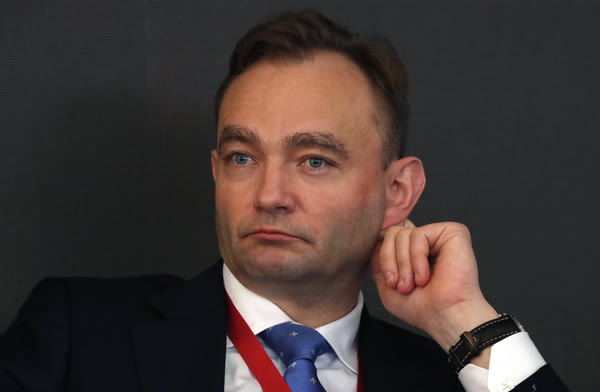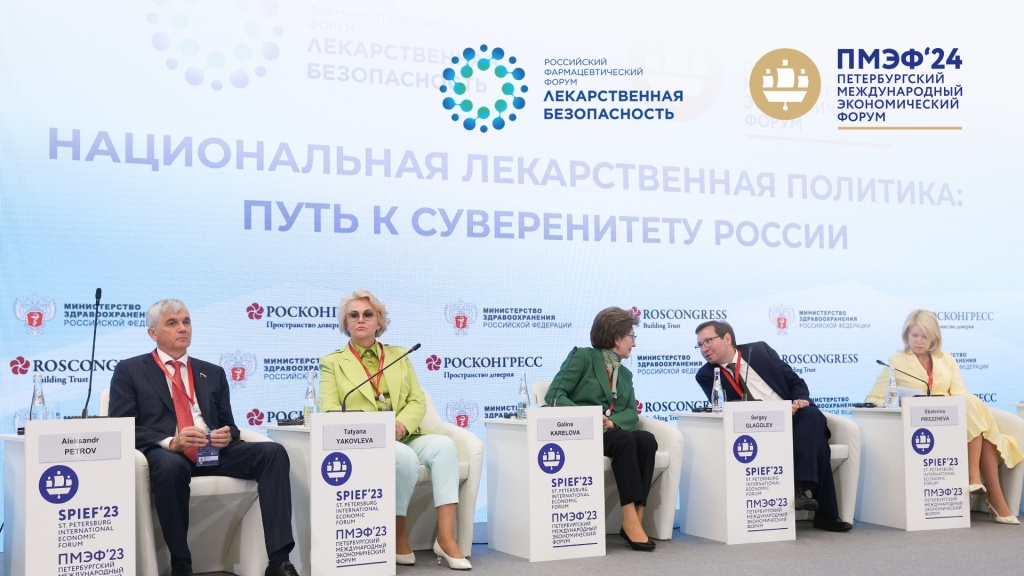
The Potential and Prospects for Developing the Digital Economy in the Russian Regions
The Potential and Prospects for Developing the Digital Economy in the Russian Regions
KEY CONCLUSIONS
Digitalization should become one of the key drivers for regional social and economic development
“A region’s ability to use the whole potential of digital economy is a crucial competitive strength in fight for investors, and regions are, of course, fighting for investors through creating an appropriate environment. It is a matter of registering a land plot, obtaining a construction permit, getting information about all utilities and historic landmarks, as well as the rest of the conditions. It is a matter of competing for people. There is nothing more important than human capital,” Sergey Kirienko, First Deputy Chief of Staff of the Presidential Executive Office of the Russian Federation.
“Digitalization has become one the country’s key economic development tracks. However, it is not limited to just economic categories, because access to digital technologies changes everything: it improves the quality of life, makes industrial facilities and agriculture more efficient, makes it easier for small and medium-sized businesses to reach out to customers and to access information – including media – and allows to completely change the relations model between a citizen and a government and even to develop new forms of democracy, such as e-voting,” Maxim Filimonov, Deputy Chief Executive Officer, Chief Editor, TASS Russia.
PROBLEMS
No legislation for digital economy
“The worst problem we see as legislators is the lack of clear legislation. We have already prepared a set of draft laws that we are going to submit for reviewal: it is a law on digital signature, it is digital profiles and it is the electronic employment record book,” Andrey Turchak, Deputy Chairman of the Federation Council of the Federal Assembly of the Russian Federation.
Bureaucracy in the way of introducing digital technology
“In order to build a data system, we need to adopt a statutory act – which will take a year – to approve changes to the budget, get the money, sign contracts and get the contract-stipulated work done. What you have on your mind will take 2–3 years. This is not how digitalization works. It only works if change is being permanently introduced. Until we change the system itself, regions will be unable to introduce digitalization,” Savva Shipov, Deputy Minister of Economic Development of the Russian Federation.
“It is time we understood that nothing works without the political will of each and every leader,” Andrei Vorobyov, Governor of Moscow Region.
Uneven regional development
“We have made a huge leap: 82% of our people get the high-speed internet coverage, while 50% of territory do not have coverage at all [fibre-optic line, – Ed.]. We realize that it makes no sense to bring it to remote villages, to the Arctic territories, where villages are sometimes hundreds – and sometimes thousands – of kilometres apart. In the nearest decades, it will most likely be covered by a satellite. And of course, our biggest limitation here is the high cost of sky-fi. It is not just Yakutia’s problem – it is a common problem for all Arctic regions,” Aysen Nikolaev, Head of Sakha Republic (Yakutia).
SOLUTIONS
Organizing digital technology training for senior managers
“The most important part here is changing the leaders’ attitude and creating regional training programmes for top managers above all. Regional leadership teams that should understand what it means and what opportunities it opens up,” Sergey Kirienko, First Deputy Chief of Staff of the Presidential Executive Office of the Russian Federation.
“It is important to train people. Together with our colleagues from the Ministry of Digital Development and the Academy of Public Administration, we are making a programme for digital transformation leaders. This has a serious effect. People start thinking in a different fashion. We need to address it,” Savva Shipov, Deputy Minister of Economic Development of the Russian Federation.
Creating a regional digital development rating and sharing best practices
“Together with experts, the Digital Development Ministry and the Economic Development Ministry, we have reached an understanding that we need to address the need for the regions rating [of digitalization, – Ed.]. What do we need this rating for? Not to reveal the best and showcase the worst. This rating aims to promote best practices our regions are so rich in,” Andrey Turchak, Deputy Chairman of the Federation Council of the Federal Assembly of the Russian Federation.
“Talks about the rating [of digitalization, – Ed.] are a good thing. In the World Bank, we support this approach, because this type of analysis helps regions benchmark. As a result, [it] forms a more favourable climate for introducing a digital economy,” Andras Horvai, Country Director, Resident Representative for the Russian Federation, Europe and Central Asia, World Bank Group.
“We suggest creating an IT system with the use of artificial intelligence, which will collect large volumes of data from a broad range of sources, and within this project we could analyze all ties and connections, build predictive analytics and prepare analysis in the context of various digitalization aspects. This will improve the rating quality,” Anna Nikitchenko, Chief Executive Officer, Digital Development Foundation.
“We need platforms to share successful practices, solution libraries, otherwise the rating [of digitalization, – Ed.] will be too stiff and it will just insignificantly change over the span of 5 years. The government allocates a fair amount of money for project developing, and regional successful practices can be gift-wrapped and exported to other regions,” Anton Nemkin, President, Sochi Digital Valley Foundation.
Coordinating regional digitalization on the federal level
“The Ministry of Economy, the Ministry of Digital Development should become something like an architect or a dictator in a good way – those who will say: “This is our path forward – you do not need to come up with 10 thousand solutions. If you are a rich region, you still can come up with 10 thousand solutions – this is your right and your cost. But if you are a subsidized region, here is your solution: we are going to follow it and do the things it prescribes.” We need more direct instructions on what technologies and solutions must be applied,” Anton Alikhanov, Governor of Kaliningrad Region.
“We need a centralized state policy that would help us provide the most remote localities with high-quality Internet access, electronic medical records and children with the most up-to-date electronic content,” Mikhail Oseevskiy, President, Chairman of the Management Board, Rostelecom.
“We need to level out the [regional, – Ed.] situation, first of all when it comes to digital services, because a citizen is entitled to get all digital services regardless of where they live. This is why early next year we will give the regions a standard cloud solution with pre-set standard services that will help the regions customize their services without any extra cost, provide them well through our consolidated portal or through regional resources,” Maksim Parshin, Deputy Minister of Digital Development, Communications and Mass Media of the Russian Federation.
Creating infrastructure for digitalization
“First of all, there is a need for a solution, to have cheap office spaces, infrastructure and data centres, so that young people could easily start their business. The Ministry of Economy came up with an idea to create a virtual Skolkovo. This idea will open up an enormous potential to expand and develop IT companies and regional digital business,” Andrey Kuzyaev, President, Chairman of the Management Board, Member of the Board of Directors, ER-Telecom Holding.
“We need a core infrastructure. I am confident that mobile communications are the very infrastructure that will help pull through digitalization and do it well. If there is a core infrastructure based on the most state-of-the-art technologies with good coverage, this is precisely the foundation for everything to happen,” Sergey Emdin, Chief Executive Officer, Tele2.
For more information, visit the Roscongress Foundation's Information and Analytical System at roscongress.org/en.








